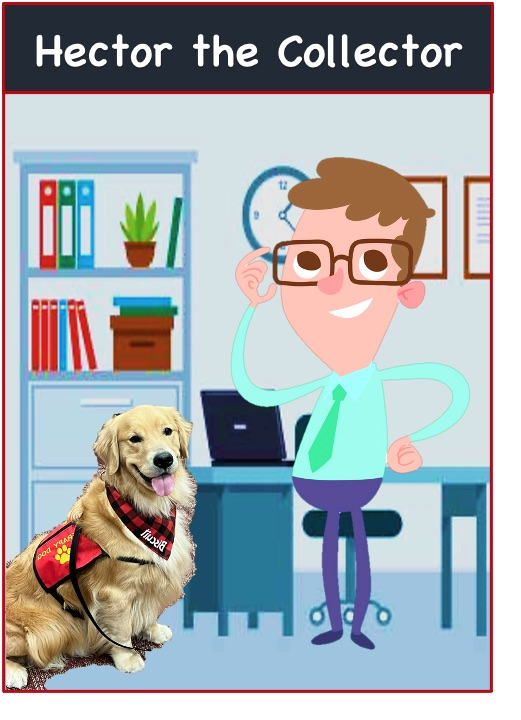
Hi Everyone!
It’s Hector and I hope the trees in your area have begun to show their autumn colors. Over by me, things are starting to become quite beautiful.
Recently, I’ve been getting a lot of mail from readers who have told me about their company’s policy on bringing therapy pets to the office.
As many of you know, Covid resulted in millions of employees being forced to work from home. As a result of being isolated from the daily personal interaction with co-workers and friends, countless numbers of people went to their nearby animal shelter and adopted a dog, cat or other pet seeking comfort and companionship.
Depending upon the area of the country, requiring (or allowing) employees to work remotely may have stretched all the way to early 2023. From this year however, many companies have changed their remote work policy requiring employees to work within a hybrid arrangement or having them come back to the office on a full-time basis.
Requiring employees to return to the office after working remotely for so long, especially with the help of a new pet, is easier said than done. Over the past 2-3 years, pets have become an indispensable part of an employee’s work environment and the idea of leaving your dog or cat at home is untenable for many people.
With the latter in mind, many employees have requested management to allow them to bring their dogs or cats to the office, and companies across the board have responded affirmatively.
Introducing therapy dogs or other pets into the office environment can have both a positive and negative impact on work performance, especially when collection activity is taking place. Here are some factors to consider:
Positive Impacts:
Stress Reduction: Interacting with therapy pets has been shown to reduce stress levels, lower blood pressure, and promote relaxation. Collectors will often find comfort in having their furry friend around, particularly when some collection calls can become difficult, and even upsetting.
Improved Mood: Therapy pets can boost overall mood and create a sense of happiness. Happier collectors may often be more productive and engaged in their work.
Increased Social Interaction: Therapy pets can act as social catalysts, encouraging employees to interact and communicate more often with each other, thus fostering teamwork and camaraderie among colleagues.
Reduced Absenteeism: A less stressful environment and improved overall well-being might lead to fewer sick days, decreased absenteeism, and collector turnover.
Negative Impacts:
Allergies and Phobias: Some employees may have allergies or phobias related to dogs and cats, which can cause discomfort and negatively impact their work performance.
Distractions: Dogs, especially playful or energetic ones, can be distracting. Collectors might spend more time interacting with the dogs than focusing on calling past due customers, leading to decreased productivity.
Fear or Discomfort: Not all employees are comfortable around animals. For some, the presence of dogs might cause anxiety or fear, which can hamper their ability to work effectively.
Hygiene Concerns: Maintaining a clean environment can be challenging with pets in the office. Issues related to hygiene, such as dog hair and odors, might arise, causing discomfort for some employees.
Legal and Liability Issues: If a dog or cat were to bite or cause injury to an employee or visitor, it could lead to legal complications and liability concerns for the company.
Introducing therapy pets into the office can be beneficial if done thoughtfully and with consideration for the needs and preferences of all employees. Establishing clear guidelines, addressing potential concerns, and creating designated spaces and times for interaction can help mitigate negative impacts. It’s crucial for employers to assess the unique dynamics of their workplace and workforce before deciding to implement a therapy pet program. When done right, it can contribute to a more positive and engaging work environment.
Hector the Collector is a credit, collection, and human resources advice column by Nancy Seiverd President CMI Credit Mediators Inc. Your thoughts and comments (nseiverd@cmiweb.com) are most welcome!
All Rights Reserved

